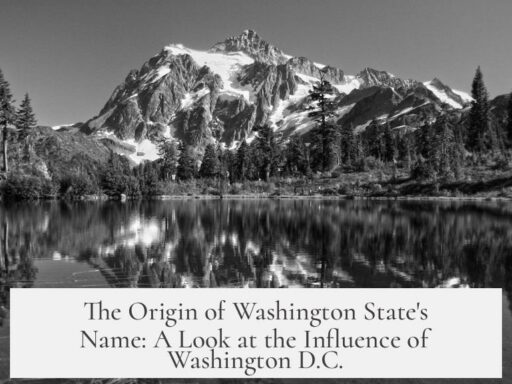John Winthrop’s phrase “City on a hill” originally meant that the new Puritan community in Massachusetts Bay Colony should serve as a visible, exemplary model of Christian virtue and communal responsibility. It emphasized the community’s duty to live according to high moral and religious standards, knowing that their conduct would be observed by the world. Failure to meet these standards would lead to public shame and the withdrawal of God’s favor.
Winthrop delivered this message in his 1630 sermon “A Model of Christian Charity” aboard the Arbella, addressing his fellow settlers. He purposely invoked biblical imagery to inspire and warn them. The phrase “city on a hill” draws from Matthew 5:14-16, where Jesus tells his followers, “You are the light of the world. A city that is set on a hill cannot be hidden.” This passage highlights the responsibility of the faithful to shine visibly through their good works, serving as an example that glorifies God.
Winthrop also connects this idea to the prophetic vision in Isaiah 2:2, which speaks of the “mountain of the Lord’s house” exalted above others, attracting all nations. In the Puritan context, this vision symbolized a community living under God’s law, meant to influence and lead the world morally and spiritually.
However, Winthrop’s “city on a hill” was conditional. It symbolized a public covenant with God, relying on the settlers’ faithfulness to their religious and social commitments. He warned that if they “deal falsely with our God,” they risked losing divine protection and becoming “a story and a by-word through the world.” The idea of public scrutiny is central: the community’s success or failure would reflect God’s favor or disapproval to all observers.
This concept of being observed carries a strong communal and spiritual responsibility. Winthrop urged settlers to maintain charity, justice, and religious devotion. Their unity and righteousness would serve as a beacon to others and demonstrate the practical outworking of Christian ideals in a new society.
The phrase has deeper roots in medieval and Protestant traditions. In the Middle Ages, the “city on a hill” symbolized the Church as a unifying light for all people. Reformers like John Calvin taught that pastors and the godly must live exemplary lives as visible beacons. Calvin described them as “put into that rank … to leave the rest behind and give light from a higher post,” emphasizing accountability.
Similarly, Protestant thinkers such as Wolfgang Mäuslein (Musculus) and Nicholas Ridley insisted that ministers should illuminate spiritual darkness by preaching truth and administering sacraments correctly. The church itself becomes a “city on a hill” when it faithfully follows Christ’s teachings, shining visibly to the world.
In American history, John F. Kennedy later popularized Winthrop’s phrase in 1961, casting it as a symbol of America’s global responsibilities. Kennedy reminded his audience that the United States stood “as a city upon a hill,” watched closely by the world, emphasizing the need for moral integrity and good governance.
To summarize, Winthrop’s original meaning of “city on a hill” captures these key points:
- The phrase symbolizes a community exemplifying Christian virtue and covenant with God.
- It draws on biblical passages emphasizing visibility, responsibility, and moral leadership.
- The community’s success depends on faithfulness to religious and social duties.
- Failure results in loss of God’s favor and public shame, not necessarily direct punishment.
- It builds on longstanding religious traditions about visible godliness and spiritual leadership.
- Later uses, such as Kennedy’s, broadened the phrase to national and political responsibility.
What Did John Winthrop’s “City on a Hill” Phrase Actually Mean in Its Original Context?

John Winthrop’s phrase “City on a hill” originally meant that the new Puritan settlement in New England should serve as a shining example of a godly community. It wasn’t just about grandeur or dominance—it was a call to live up to high moral and religious standards, with the whole world watching their success or failure.
But let’s peel back the centuries and dig a bit deeper into what this phrase really stood for in Winthrop’s mind.
The Biblical Backbone: Light, Salt, and a City on a Hill
At the heart of Winthrop’s “City on a hill” lies a direct nod to the Sermon on the Mount, specifically Matthew 5:14-16. If you peek at that passage, Jesus is basically telling his followers, “You are the light of the world. A city set on a hill cannot be hidden.” The message? Your actions should shine visibly so others can see the good deeds and praise God.
Winthrop and his fellow Puritans took this metaphor seriously. They saw themselves as “candlesticks” meant to illuminate the dark wilderness of the New World—not just physically, but spiritually and morally.
Equally important, the Book of Isaiah (2:2) offers an older vision of a city exalted above the hills, a sanctuary drawing nations to righteousness. This vision gave Winthrop a sense of historic and divine mission, padding his idea with prophecy and hope.
Winthrop’s Warnings: The Burden Behind the Light
Far from a boastful slogan, Winthrop’s phrase carried strong conditions. The “City on a hill” was a model only if the settlers upheld their values. Fidelity to God was the linchpin.
Winthrop himself warned, “If we shall deal falsely with our God… and cause Him to withdraw His present help from us, we shall be made a story and a by-word through the world.” Translating that from 17th-century English: if they failed morally, they’d lose God’s favor and become subjects of global ridicule—not because God would strike them down outright, but because their reputation and influence would collapse.
He further lamented that failure would “shame the faces of many of God’s worthy servants, and cause their prayers to be turned into curses.” Such words reveal a serious awareness of interconnected responsibility: their conduct could uplift or stain the faith of others.
More Than a Motto: A Moral Compass and Political Vision

Winthrop’s “City on a hill” was more than poetic imagery. It shaped how the Puritans saw their mission: to forge a godly community grounded in justice and piety. Their colony was to be a beacon for the world, but one whose light depended on their collective adherence to religious ideals.
This wasn’t a political power play but a spiritual experiment with very real societal stakes. They believed their success or failure would influence future generations and even divine favor.
Medieval and Protestant Roots: The Evolving Symbol of the City on a Hill
Winthrop’s phrase didn’t emerge from a vacuum. It drew on earlier Christian traditions that portrayed the church or godly communities as visible, moral beacons.
- During the Middle Ages, the “city on the hill” evoked Christ’s uniting presence—an ideal kingdom rising above divisions.
- John Calvin, a major Protestant reformer, taught that pastors and the faithful must live as exemplars, like lighthouses standing tall to give light to others. His phrase: pastors are “put into that rank […] to leave the rest behind and give light from a higher post.”
- Wolfgang Mäuslein (Musculus) emphasized ministers as light-bearers casting truth into darkness, underscoring the educational and moral role in guiding society.
- Nicholas Ridley emphasized how “where Christ’s sacraments are duly ministered, His gospel truly preached and followed,” that place “doth Christ’s church shine as a city upon a hill.” So, genuine practice of faith illuminated the community’s witness.
A Phrase Recast Through Time: From Winthrop to JFK
The phrase took on new life centuries later when John F. Kennedy referenced it in 1961. Echoing Winthrop’s idea, JFK framed America as “a city upon a hill” watched by the world, underscoring the responsibility of government officials to live up to high ideals.
His words: “We must always consider that we shall be as a city upon a hill—the eyes of all people are upon us.” This usage recognizes the phrase’s lasting power as a metaphor for leadership and moral responsibility, though the context shifted from Puritan theology to modern democracy.
So, Why Does This Still Matter?

Winthrop’s phrase reminds us that leadership—whether of a nation, a community, or even oneself—is visible and impactful. It places a heavy, often uncomfortable spotlight on conduct. The “city on a hill” imagery isn’t an excuse for self-righteousness but a call to humility and dedication.
Isn’t it interesting that a phrase coined to inspire a small group of 17th-century settlers still challenges leaders and citizens today? The phrase pushes us to ask: What example are we setting? Are we living in a way that uplifts others, or are we risking “losing the light” through neglect and hypocrisy?
Practical Takeaways for Today
- Leadership requires transparency. People watch and emulate actions more than words.
- Success in any community depends on shared values and responsibility, not just ambition.
- Failing to live these values risks losing trust and respect—not mystical wrath, but very real social consequences.
- Remember history: the “city on a hill” concept has deep, rich roots in faith and moral accountability, not just political propaganda.
In a world craving authenticity and integrity, maybe it’s time we revisit Winthrop’s original message—not as a quaint colonial relic, but as a reminder of the power and peril of being the eyes of many. After all, the light can’t shine if we hide the candle under a bushel.




